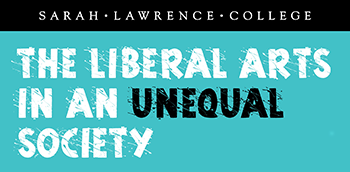Event Title
Cultivating a New Generation of Social Justice Activists
Start Date
15-11-2014 3:30 PM
End Date
15-11-2014 4:15 PM
Abstract
Growing inequality, deep-seated and persistent racism, and the confluence of environmental and other crises pose profound social justice challenges to American democracy. This presentation will discuss the need for liberal arts institutions to respond to these challenges by thinking in social justice and activist terms. College students have played important roles in movements for social justice and, upon graduation, often continue to play leading roles in these movements. College is a time of life where many young people are open to adopting new and critical frames of analysis and begin a commitment to activism. While students often learn about systems of injustice in their coursework, they do not necessarily learn about solutions. Meanwhile, community partnerships typically involve community service not activism. Yet social justice requires something more or different. Students need to learn how to address structures of inequality and develop the capacity to build collaborative relationships with people who are different from them, often across lines of race and class. This is highly challenging work for institutions, for faculty and staff, and for students as it demands engagement beyond the cognitive level to the moral and relational spheres. Yet it offers higher education institutions a path to redefine their relevance to a society that grows more divided every day.
Presenter Biography
Mark R. Warren is a sociologist concerned with the revitalization of American democratic and community life. He studies efforts to strengthen institutions that anchor low-income communities— schools, congregations and other community-based organizations—and to build broad-based alliances among these institutions and across race and social class. He is interested in the development of educational and community leadership through involvement in multiracial political action as well as the outcomes of such efforts in fostering community development, social justice, and school transformation. He is committed to using the results of scholarly research to promote equity in public policy and to advance democratic practice.
Streaming Media
Cultivating a New Generation of Social Justice Activists
Growing inequality, deep-seated and persistent racism, and the confluence of environmental and other crises pose profound social justice challenges to American democracy. This presentation will discuss the need for liberal arts institutions to respond to these challenges by thinking in social justice and activist terms. College students have played important roles in movements for social justice and, upon graduation, often continue to play leading roles in these movements. College is a time of life where many young people are open to adopting new and critical frames of analysis and begin a commitment to activism. While students often learn about systems of injustice in their coursework, they do not necessarily learn about solutions. Meanwhile, community partnerships typically involve community service not activism. Yet social justice requires something more or different. Students need to learn how to address structures of inequality and develop the capacity to build collaborative relationships with people who are different from them, often across lines of race and class. This is highly challenging work for institutions, for faculty and staff, and for students as it demands engagement beyond the cognitive level to the moral and relational spheres. Yet it offers higher education institutions a path to redefine their relevance to a society that grows more divided every day.



